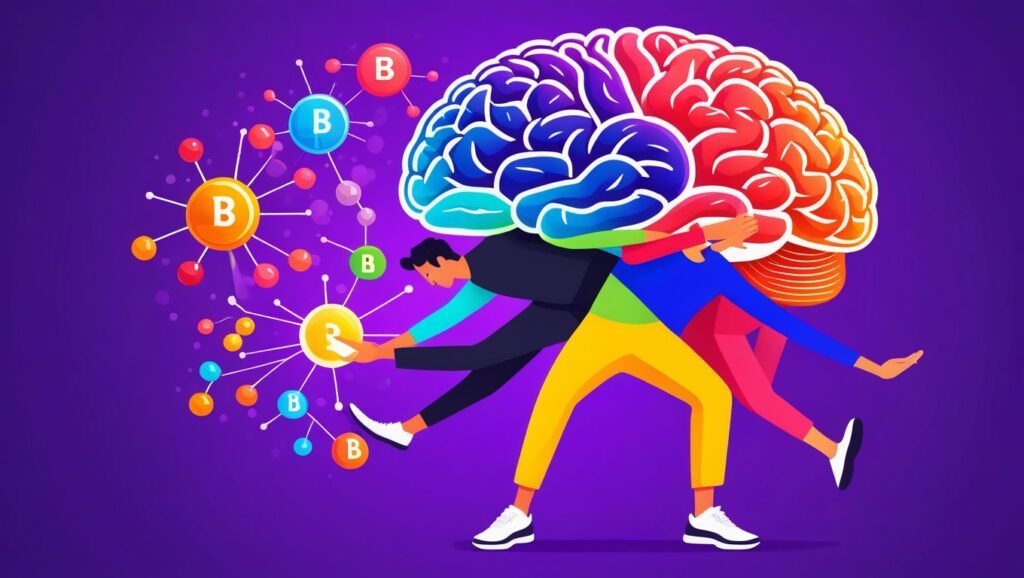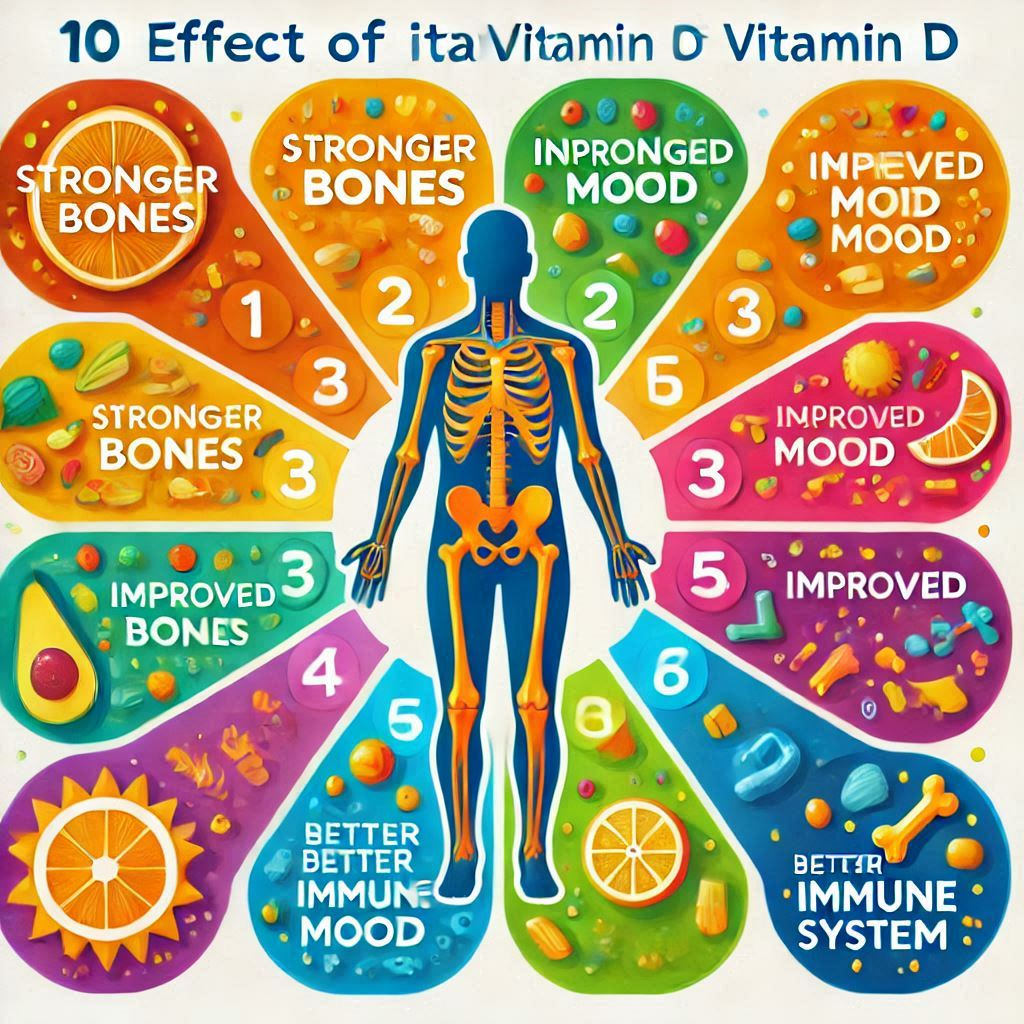
“10 Incredible Gains from Vitamin B1, B6, B12 + More”
Explore incredible gains from vitamins B1, B6, B12, and more for your health and well-being. Enhance your life with vital nutrients.


Introduction
Brief Overview of Vitamin B1, B6, B12, and Other B Vitamins
Vitamin B1 (thiamine), Vitamin B6 (pyridoxine), and Vitamin B12 (cobalamin) are essential nutrients that play crucial roles in maintaining overall health. These vitamins are part of the B-complex group, which includes eight different B vitamins.
Each of these vitamins has unique functions, but they often work together to support various bodily processes, including energy metabolism, brain function, and immune support.
Explanation of Their Combined Health Benefits
When combined, Vitamin B1, B6, and B12 offer synergistic health benefits that enhance overall well-being. Vitamin B1 is essential for converting carbohydrates into energy and supporting nerve function.
Vitamin B6 is involved in protein metabolism, neurotransmitter synthesis, and immune function. Vitamin B12 is crucial for red blood cell formation, DNA synthesis, and maintaining nerve health.
Together, these vitamins support energy production, cognitive function, cardiovascular health, and more.

Benefit 1: Energy Boost
Role of Vitamin B1, B6, and B12 in Energy Metabolism
Vitamin B1, B6, and B12 play vital roles in energy metabolism. Vitamin B1 helps convert carbohydrates into glucose, which is used by the body for energy. It also supports the function of enzymes involved in energy production.
Vitamin B6 is essential for the metabolism of proteins and amino acids, which are necessary for energy production. Vitamin B12 is involved in the conversion of fats and proteins into energy and supports the production of red blood cells, which transport oxygen to the body’s tissues.
How Their Combination Enhances Energy Levels and Reduces Fatigue
The combination of Vitamin B1, B6, and B12 enhances energy levels by supporting various metabolic pathways that produce energy. Vitamin B1 ensures that carbohydrates are efficiently converted into glucose, providing a steady supply of energy.
Vitamin B6 supports protein metabolism and the production of neurotransmitters that regulate energy levels. Vitamin B12 helps convert fats and proteins into energy and supports red blood cell production, ensuring that tissues receive adequate oxygen.
Together, these vitamins help reduce fatigue and maintain optimal energy levels throughout the day.

Benefit 2: Brain Health
Importance of Vitamin B1, B6, and B12 for Cognitive Function
Vitamin B1, B6, and B12 are essential for maintaining cognitive function and brain health. Vitamin B1 supports nerve function and the production of neurotransmitters, which are critical for communication between brain cells.
Vitamin B6 is involved in the synthesis of neurotransmitters, such as serotonin and dopamine, which regulate mood and cognitive function. Vitamin B12 is crucial for maintaining the myelin sheath, a protective covering around nerve fibers that ensures proper nerve signal transmission.
Benefits for Memory, Mental Clarity, and Overall Brain Health
Adequate intake of Vitamin B1, B6, and B12 is associated with improved memory, mental clarity, and overall brain health. Vitamin B1 supports nerve function and neurotransmitter production, enhancing cognitive function and memory.
Vitamin B6’s role in neurotransmitter synthesis helps regulate mood and cognitive processes, improving mental clarity and reducing the risk of depression.
Vitamin B12’s involvement in maintaining the myelin sheath ensures proper nerve function and reduces the risk of neurodegenerative diseases. Together, these vitamins support brain health, enhance cognitive performance, and protect against cognitive decline.

Benefit 3: Immune Support
How Vitamin B1, B6, and B12 Enhance Immune Function
Vitamin B1, B6, and B12 play crucial roles in enhancing immune function. Vitamin B1 supports the production of antibodies, which are essential for fighting infections.
Vitamin B6 is involved in the production and function of white blood cells, which are critical for immune response. Vitamin B12 supports the production of red blood cells and helps maintain the health of the immune system.
Benefits for Fighting Infections and Illnesses
The combination of vitamins B1, B6, and B12 enhances the body’s ability to fight infections and illnesses by supporting various aspects of the immune system.
Vitamin B1’s role in antibody production helps the body recognize and neutralize pathogens. Vitamin B6 supports the production and function of white blood cells, ensuring a robust immune response.
Vitamin B12’s involvement in red blood cell production ensures that the body’s tissues receive adequate oxygen, supporting overall immune health. Together, these vitamins help maintain a strong immune system and reduce the risk of infections and illnesses.
Benefit 4: Heart Health
Role of Vitamin B1, B6, and B12 in Maintaining Cardiovascular Health
Vitamin B1, B6, and B12 are essential for maintaining cardiovascular health. Vitamin B1 supports heart function by ensuring that the heart muscles receive adequate energy. It also helps regulate blood pressure and prevent cardiovascular diseases.
Vitamin B6 is involved in the metabolism of homocysteine, an amino acid that, when elevated, is associated with an increased risk of heart disease. Vitamin B12 also helps regulate homocysteine levels and supports the production of red blood cells, which are essential for oxygen transport.
How Their Combination Reduces the Risk of Heart Disease
The combination of vitamins B1, B6, and B12 provides comprehensive support for cardiovascular health. Vitamin B1 ensures that the heart muscles receive adequate energy and helps regulate blood pressure, reducing the risk of heart disease.
Vitamin B6 and B12 work together to regulate homocysteine levels, reducing the risk of atherosclerosis and other cardiovascular diseases. By ensuring adequate intake of these vitamins, individuals can support heart health, reduce the risk of heart disease, and promote overall well-being.
Benefit 5: Cognitive Function
How Vitamin B1, B6, and B12 Support Brain Health
Vitamin B1, B6, and B12 are essential for maintaining brain health and cognitive function. Vitamin B1 (thiamine) supports nerve function and the production of neurotransmitters, which are critical for communication between brain cells.
Vitamin B6 (pyridoxine) is involved in the synthesis of neurotransmitters, such as serotonin, dopamine, and gamma-aminobutyric acid (GABA), which regulate mood and cognitive processes. Vitamin B12 (cobalamin) is crucial for maintaining the myelin sheath, a protective covering around nerve fibers that ensures proper nerve signal transmission.
Benefits for Memory, Mental Clarity, and Cognitive Function
Adequate intake of vitamins B1, B6, and B12 is associated with improved memory, mental clarity, and overall cognitive function. Vitamin B1 supports nerve function and neurotransmitter production, enhancing cognitive function and memory.
Vitamin B6’s role in neurotransmitter synthesis helps regulate mood and cognitive processes, improving mental clarity and reducing the risk of depression. Vitamin B12’s involvement in maintaining the myelin sheath ensures proper nerve function and reduces the risk of neurodegenerative diseases.
Together, these vitamins support brain health, enhance cognitive performance, and protect against cognitive decline.
Benefit 6: Mood Regulation
Role of Vitamin B1, B6, and B12 in Mood Regulation
Vitamin B1, B6, and B12 play crucial roles in regulating mood and mental health. Vitamin B1 supports the production of neurotransmitters that regulate mood and cognitive function.
Vitamin B6 is involved in the synthesis of neurotransmitters, such as serotonin and dopamine, which are essential for mood regulation.
Vitamin B12 supports brain health by maintaining the myelin sheath and ensuring proper nerve function, which is critical for mood regulation.
How Their Combination Helps Reduce Symptoms of Depression and Anxiety
The combination of Vitamin B1, B6, and B12 helps reduce symptoms of depression and anxiety by providing comprehensive support for brain health and neurotransmitter function.
Vitamin B1’s role in neurotransmitter production helps enhance mood and reduce anxiety. Vitamin B6’s involvement in neurotransmitter synthesis helps regulate mood and cognitive processes, reducing symptoms of depression and anxiety.
Vitamin B12’s maintenance of the myelin sheath ensures proper nerve function and reduces the risk of neurodegenerative diseases, which can impact mood. Together, these vitamins help maintain mental health and improve overall well-being.
Benefit 7: Skin Health
Importance of Vitamin B1, B6, and B12 for Healthy Skin
Vitamin B1, B6, and B12 are essential for maintaining healthy skin. Vitamin B1 acts as an antioxidant, protecting skin cells from oxidative damage caused by free radicals.
Vitamin B6 supports protein metabolism and the synthesis of collagen, which is essential for maintaining skin elasticity and preventing wrinkles. Vitamin B12 supports cell regeneration and repair, ensuring that skin remains healthy and youthful.
Their Combination Protects Against Skin Damage and Aging
The combination of vitamins B1, B6, and B12 provides comprehensive protection against skin damage and aging. Vitamin B1’s antioxidant properties help protect skin cells from oxidative damage, reducing the risk of premature aging.
Vitamin B6 supports collagen synthesis and protein metabolism, promoting skin elasticity and reducing the appearance of wrinkles. Vitamin B12 supports cell regeneration and repair, ensuring that skin remains healthy and youthful.
Together, these vitamins help maintain healthy, youthful-looking skin and protect against skin damage and aging.
Benefit 8: Nervous System Support
How Vitamin B1, B6, and B12 Support the Nervous System
Vitamins B1, B6, and B12 play crucial roles in supporting the nervous system. Vitamin B1 supports nerve function and the production of neurotransmitters, which are essential for communication between nerve cells.
Vitamin B6 is involved in the synthesis of neurotransmitters that regulate nerve function and cognitive processes. Vitamin B12 is crucial for maintaining the myelin sheath, a protective covering around nerve fibers that ensures proper nerve signal transmission.
Benefits for Nerve Function and Reducing Neuropathy
Adequate intake of vitamins B1, B6, and B12 is associated with improved nerve function and a reduced risk of neuropathy. Vitamin B1 supports nerve function and neurotransmitter production, ensuring proper communication between nerve cells.
Vitamin B6’s role in neurotransmitter synthesis helps regulate nerve function and cognitive processes, reducing the risk of neuropathy. Vitamin B12’s maintenance of the myelin sheath ensures proper nerve signal transmission and reduces the risk of neurodegenerative diseases.
Together, these vitamins support the nervous system, enhance nerve function, and reduce the risk of neuropathy.
Benefit 9: Red Blood Cell Production
Role of Vitamin B1, B6, and B12 in the Production of Red Blood Cells
Vitamin B1 (thiamine), Vitamin B6 (pyridoxine), and Vitamin B12 (cobalamin) are essential for the production of red blood cells. Vitamin B1 supports the production of hemoglobin, the protein in red blood cells that carries oxygen.
Vitamin B6 is involved in the synthesis of hemoglobin and helps regulate the production of red blood cells. Vitamin B12 is crucial for the formation and maturation of red blood cells in the bone marrow.
Adequate intake of these vitamins ensures that the body can produce healthy red blood cells, which are essential for oxygen transport and overall health.
Benefits for Preventing Anemia and Improving Oxygen Transport
The combination of vitamins B1, B6, and B12 helps prevent anemia by supporting the production of healthy red blood cells. Anemia occurs when the body does not have enough red blood cells or hemoglobin, leading to fatigue, weakness, and other health issues.
Vitamin B1 supports hemoglobin production, ensuring that red blood cells can carry oxygen efficiently. Vitamin B6 regulates red blood cell production and helps prevent anemia.
Vitamin B12 is essential for the formation and maturation of red blood cells, preventing megaloblastic anemia, a condition characterized by large, immature red blood cells. Together, these vitamins improve oxygen transport, enhance energy levels, and support overall health.
Benefit 10: Metabolism Support
How Vitamin B1, B6, and B12 Support Metabolism
Vitamin B1, B6, and B12 play crucial roles in supporting metabolism. Vitamin B1 helps convert carbohydrates into glucose, which is used by the body for energy. It also supports the function of enzymes involved in energy production.
Vitamin B6 is essential for the metabolism of proteins and amino acids, which are necessary for energy production. Vitamin B12 is involved in the conversion of fats and proteins into energy and supports the production of red blood cells, which transport oxygen to the body’s tissues.
Adequate intake of these vitamins ensures that the body can efficiently produce and utilize energy, supporting overall metabolic health.
Benefits for Weight Management and Overall Metabolic Health
The combination of vitamins B1, B6, and B12 supports weight management and overall metabolic health by enhancing energy production and utilization.
Vitamin B1 ensures that carbohydrates are efficiently converted into glucose, providing a steady supply of energy. Vitamin B6 supports protein metabolism and the production of neurotransmitters that regulate energy levels and appetite.
Vitamin B12 helps convert fats and proteins into energy and supports red blood cell production, ensuring that tissues receive adequate oxygen. Together, these vitamins help maintain optimal energy levels, support weight management, and promote overall metabolic health.
Conclusion
Recap of the 10 Incredible Gains from Vitamin B1, B6, B12, and More
Vitamin B1, B6, and B12 offer numerous health benefits, including energy boost, brain health, immune support, heart health, cognitive function, mood regulation, skin health, nervous system support, red blood cell production, and metabolism support.
Their combined effects provide comprehensive support for overall well-being and help reduce the risk of chronic diseases.
Encouragement to Include These Vitamins in Your Diet for Overall Well-Being
Incorporating Vitamin B1, B6, and B12 into your diet is an effective way to ensure you get enough of these essential nutrients.
By doing so, you can support your immune system, protect against oxidative damage, maintain cardiovascular and cognitive health, reduce inflammation, and promote healthy skin, muscles, and mood.
Remember to consult with a healthcare provider before starting any new supplement regimen to ensure it is appropriate for your individual needs.



